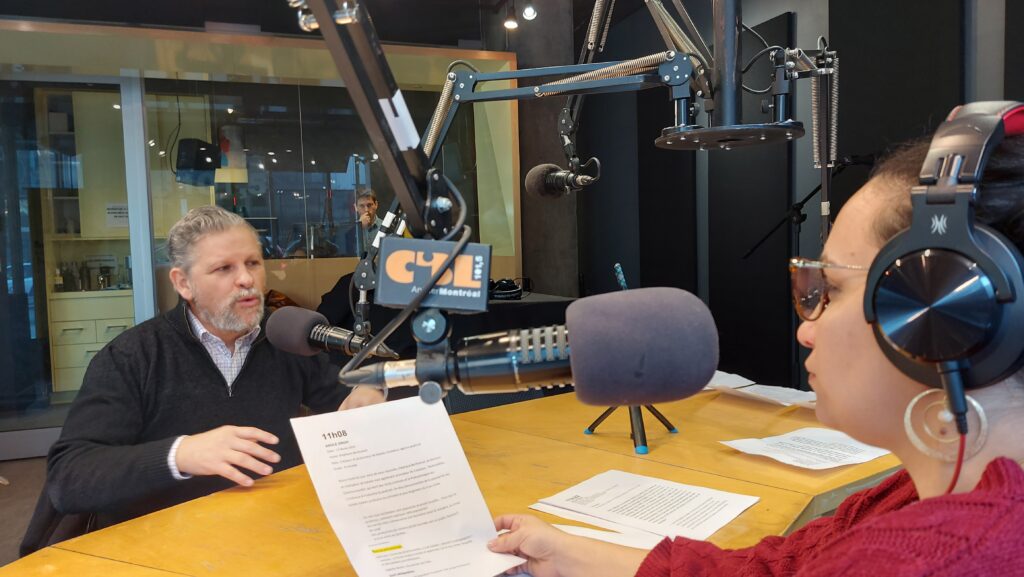True crime is a very popular genre not only in literature, film and television, but also in the podcasting world. We breakdown this sometimes sinister, but oh-so-intriguing genre, with a particular look at Quebec-based podcasts!


The true crime genre tackles stories of crimes that actually took place. While some productions report these stories as accurately as possible, others inject a dose of fiction in them, making them more akin to docudramas.
Though the genre originated in the U.S., several Quebec-based artists have jumped on the bandwagon in recent years. This is true of Stéphane Berthomet, for instance. He’s a former police officer who now produces, directs, and hosts podcasts such as Redoutables and Contre-enquête.
Law and order
Though true crime deals with legal issues, Mr. Berthomet’s approach is primarily a journalistic and documentary one, he explains on Éducaloi’s Angle Droit radio show.
“I’ve done podcasts that are investigative documentaries, I’ve done podcasts that follow more of a narrative form,” says the ex-policeman. “I delve more or less deeply into the realms of law and justice depending on the type of podcast I’m doing.”
Why are crime documentaries so popular? Is it their ability to make us confront our fears? Or do they indulge in our fascination with death? Mr. Berthomet isn’t sure, but he does note that in the U.S., these types of podcasts are the 2nd or 3rd most listened to across all podcasts.
“[The justice system] has a real impact on society: we either condemn or protect people. Often, podcasts provide information that help us understand this world better.”


More realistic
In contrast with television, Mr. Berthomet feels that podcasts offer something more concrete and realistic when it comes to telling crime stories.
This more realistic element could explain why the true crime genre appeals more to women than men. According to a study by Illinois Wesleyan University, 77% of women are more likely to choose books about real-life crimes than other types of fiction that involve violence.
Kathleen Rodgers, a sociology professor at the University of the Fraser Valley in British Columbia, has also taken an interest in women’s fascination with true crime podcasts. By analyzing forums on the subject, the researcher found that many women focus on personal safety, sharing tips with each other on where and what to avoid.
Mr. Berthomet confirms that women have a strong interest in true crime. Though the gender disparity between listeners isn’t that dramatic, he claims that around 60% of true crime podcast listeners are women.
“Plus, podcasts [all genres combined] are generally very popular with women, so you have to be cautious with these statistics,” he adds.
Made in Quebec
“Crime documentaries in Quebec are not the same as those produced in France or in the United States,” he argues.
“[They’re] a bit of both, in a way, but they’re not these big, flashy investigative-type podcasts like in the U.S., nor do they completely follow the French style of podcasting that’s sometimes very focused on [social realities] that aren’t covered by mainstream media,” he explains. “[In Quebec], you’ll mostly find independent podcasts, produced by crime enthusiasts.”
“The true crime podcast grew very organically in Quebec and is a huge success,” he says, citing Captives, the independently-produced podcast which surpassed 1.5 million listens.







